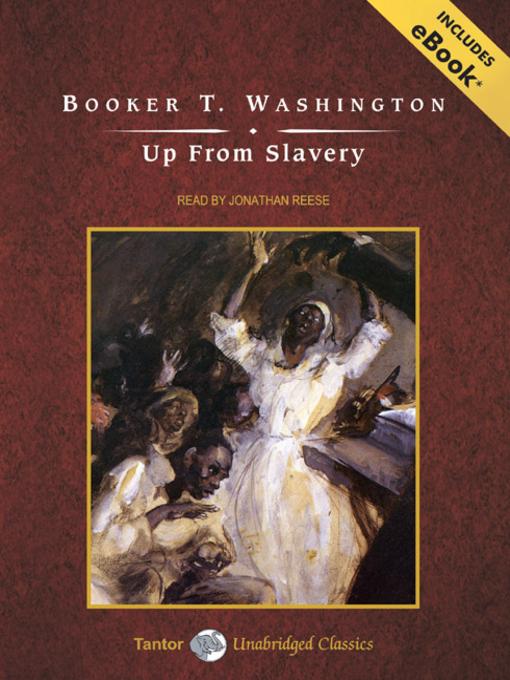- Headed for College? Recommended Books
- What's new?
- Popular titles
- Check these out!
- No wait, no problems
- See all ebooks collections

Up From Slavery, with eBook
Audiobook (Includes supplementary content)Historically acknowledged as one of America's most powerful and persuasive orators, Booker T. Washington consistently challenged the forces of racial prejudice at a time when such behavior from a black man was unheard of. While he mollified white leaders by publicly agreeing with their racist views of social parity, he also worked tirelessly to convince blacks to work together as one people in order to improve their lives and the future of their race.
This story of Booker T. Washington's rise to distinction emphasizes that a strong work ethic and excellence in whatever one is doing will be rewarded no matter what race or what position a person holds in life. As far as Washington was concerned, slavery only made the black person stronger. He also argued that both blacks and whites would benefit more from giving blacks vocational training than from encouraging the "craze for Greek and Latin learning." While this set him at odds with other black leaders of his time, it also set the groundwork for Washington's Tuskegee Institute to be the best-funded black educational institution of its era.
-
Creators
-
Publisher
-
Release date
November 30, 2009 -
Formats
-
OverDrive Listen audiobook
- ISBN: 9781400191345
- File size: 208698 KB
- Duration: 07:14:47
-
-
Languages
- English
-
Levels
- Lexile® Measure: 1320
- Text Difficulty: 10-12
-
Reviews

Loading
Formats
- OverDrive Listen audiobook
subjects
Languages
- English
Levels
- Lexile® Measure:1320
- Text Difficulty:10-12
Why is availability limited?
×Availability can change throughout the month based on the library's budget. You can still place a hold on the title, and your hold will be automatically filled as soon as the title is available again.
The Kindle Book format for this title is not supported on:
×Read-along ebook
×The OverDrive Read format of this ebook has professional narration that plays while you read in your browser. Learn more here.